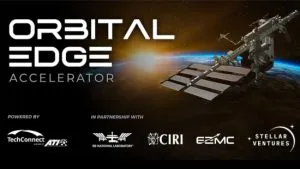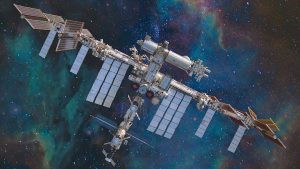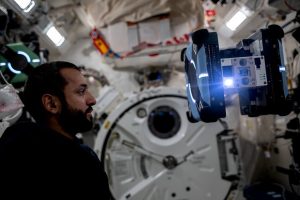Beginning its launch last month, the accelerator is still open but companies only have until 19 May to apply for funding.
Orbital Edge
Six startups can receive an investment of up to $500,000. Following this there will be mentorship, via AWS, and the opportunity to launch an ISS National Lab-sponsored investigation in low-Earth orbit. Investment partners comprise: Cook Inlet Region, E2MC, and Stellar Ventures.
 The ISS National Lab and investment partners will evaluate each submission and select up to 20 finalists to pitch their proposed projects, virtually, from 16-19 June. They will reveal the first cohort of startups on 7 July.
The ISS National Lab and investment partners will evaluate each submission and select up to 20 finalists to pitch their proposed projects, virtually, from 16-19 June. They will reveal the first cohort of startups on 7 July.
The ISS lab says it is looking for “the next wave of innovators that will shape the future space economy”.
The organisation writes:
“Having access to the unique space environment allows entrepreneurs to push the boundaries of science and technology, develop novel products, and build new businesses. Over the years, dozens of startups have been awarded flight opportunities through the ISS National Lab to advance R&D in diverse areas, from communications and remote sensing to advanced materials and biotechnology.”
International Space Station
The ISS is a U.S. National Laboratory by designation of Congress in 2005. It is responsible for managing all non-NASA research. Basically, officially enabling space research and development access to commercial, academic, and government users.
The Center for the Advancement of Science in Space (CASIS) manages the ISS National Lab. This is under a Cooperative Agreement with NASA.
To deliver the accelerator programme, the ISS National Lab is working with TechConnect.
The ISS National Lab reports the following for its space-based R&D in 2024. It is sponsoring 103 payload deliveries resulting in publishing 51 peer-reviewed papers.
Image: CASIS
See also: ISS National Lab report outlines scope of research in space

